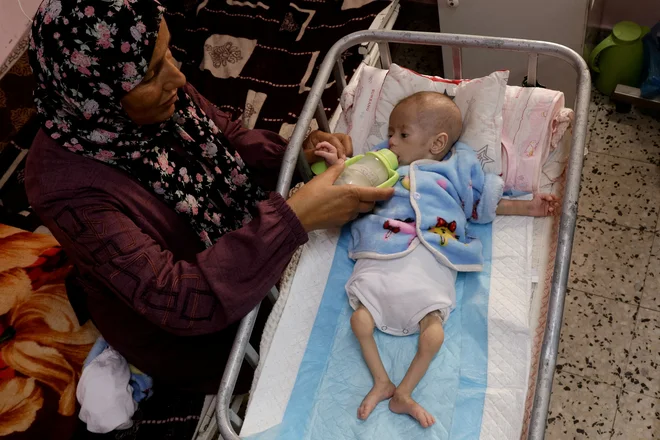MPs debate on the criteria, almost unchanged – Liberation

The second week of Discussions on the end of life opened on Monday May 19 at the Palais-Bourbon, on one of the most divisive articles in the Aid on aid to die. The fourth. Or, for those who do not master the text ardently defended by the deputy (the Democrats) Olivier Falorni: that describing the five cumulative criteria to be fulfilled to be eligible. Terms « Balanced » says the general rapporteur. Enough « Strict » for part of the hemicycle; too much « Blur » And opening the door to drifts, argued the opponents of the text. They generally did not have a good cause. With the exception of a subject which agitated the National Assembly at length: taking into account psychological suffering.
To request help to die, the current text provides for several conditions. There is age (18) – approved on Saturday evening – and nationality (French or stable residence). You also have to be reached « Of a serious and incurable affection, whatever the cause, which engages the vital prognosis, in advanced or terminal phase ». The version resulting from the commission provided for the presence of a « Physical or psychological suffering »,, « Either refractory to treatments, or unbearable depending on the person » If she decided not to receive or stop her treatment. Protest of parliamentarians: this formulation could suggest that a psychological suffering alone could make the request eligible. « We have alerts of psychologists, psychiatrists, psychoanalysts (…) Their daily role is to convince their patients that there are (an outcome for them). We would send a bad message ”launched Annie Vidal (Together for the Republic)-moreover co-rapping the bill on palliative care. « There is a fluctuation of the will, psychological suffering can be constant or temporary, it is a significant element »subsequently added his colleague LR Thibault Bazin.
Not enough to convince Olivier Ferni, nor the Minister of Health, Catherine Vautrin. « A psychological suffering in itself does not in any case open the help to die, it must be linked to the serious and incurable affection », repeated the general rapporteur. Argument supported by the minister: « We are in the context of a patient in a care path », « suffering from a serious and incurable affection which engages his vital prognosis: I do not want one to suggest that one would only look at psychological pain ». Other objection from LR Philippe Juvinattached to recalling the risk of including patients with psychiatric disorders: « A schizophrenic who makes multiple suicide attempts is serious, incurable ! « Innuendo: these attempts would initiate the vital prognosis. « It makes no sense », swept away Olivier Falorni.
The deputies nevertheless approved two amendments, carried by horizons, Liot and LR: at this stage, psychological suffering must therefore be « constant » and cannot, « alone »,, « In no case to benefit from the help of dying ». Against the opinion of the government and the rapporteurs, therefore. Because throughout the debates, Olivier Falorni has kept his position, without concession: « The current version is the best writing possible », with a « Patiently woven balance ». Catherine Vautrin’s position is generally identical.
The only amendment to the government, approved earlier in the day and supported by rapporteurs, aimed to specify another stumbling block: the definition of the « Advanced phase » affection. The addition of the minister consisted above all in resuming that posed at the beginning of the month by the High Authority for Health : the advanced phase is « Entering an irreversible process marked by the worsening of the health of the sick person who affects their quality of life. »
Satisfactory definition for some; Always too vague for others. « Do we want to open (helping him) for people at the end of their lives, or those who still have several years to live? » Quite inquired Philippe Juvin. « But under what conditions could (they) live? » Under what conditions we would like to impose on them to live if we know that they will die? ” protested Stéphane Delautrette. According to the elected PS, the « Real question » is that « »suffering»». « You want to be () impose on these people (…) as long as they are not in agony. I think it’s not human. «
The last criterion, to be « Apt to manifest his will in a free and enlightened manner »was peeled in the evening on Monday. Maintained as it is. Some parliamentarians wanted to add the assurance of prior access to palliative care (or even short care). The argument has gathered elected officials on the right but also on the left, while medical deserts, appointment times in extension and the state of the public hospital have become a chronicle without improvement for years. Yannick Monnet (Democratic and Republican left) even pleaded to make it a criterion in itself. His socialist colleague, Dominique Potier has abounded in his sense, pointed out the risk of a « Republican inequality »that those who do not have access to care can use help to die for lack of better. Text rapporteurs and the Minister have judged that this element is contained in the next provisions of the text.
These amendments have all been rejected. Just as those aimed at excluding all persons under judicial protection, with psychiatric disorders or intellectual disabilities. A most vulnerable protectionargued their defenders. A risk of stigma replied Olivier Falorni. Once again, the general rapporteur wanted to highlight the balance of his text (beyond article 4 alone): in the current state, people must be judged « Apt » to express their free and enlightened will,, the procedure « Provides for the reiteration of the will », and spreads anyone « Whose discernment is seriously altered by a disease during the process ».
Despite the dissensions, the tone remained like the previous days: calm. A few protests launched here and there in a fairly sparse hemicycle, criticisms of the hundred amendments deposited by Gérault Verny-signs of a possible obstruction which the Ciotteist deputy defends-but no shine. The various Monday votes must still be confirmed by a ballot over the entire article. 1446 amendments on the whole text must still be examined. Resumption of debates this Tuesday afternoon.








